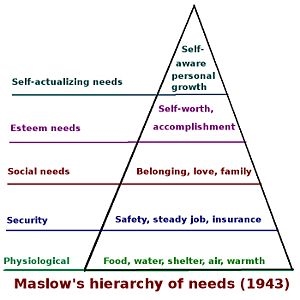I'm a domestic violence survivor, but this information has many more applications than that situation.
First of all, the church has a few sound bites , here and there, about the church not tolerating abuse. Its part of church policy. Just a quick illustration, when the man who is now my ex-husband told my former bishop he was abusing us, that bishop issued him a temple recommend and had him start blessing the Sacrament. This rewards abuse. This sends the message what they do is okay.
I had several incidents in my ward that made it very clear my ward was in my ex-husband's corner. This may be a common thing in divorce, but think about it. My husband very contritely confessed that he was abusive. I'm not going to explain this behavior, I'll invite you consult with a DV professional on this. Anyway, stop to consider that people knowingly sided with an abuser. Knowingly making themselves his allies. Think about how this might look to his former wife and children. Now, ask yourself the question, do you think that former wife and children feel safe in their ward? It doesn't matter what is said over the pulpit about not tolerating abuse. That wife and those children are now being served bitter, poisonous fruit by their ward members.
Bottom line: that wife and those children no longer feel safe in their ward. Not just unloved. They don't feel safe. Here is a Maslow's hierarchy of needs. This is one that places religion on it.

Now, when the wife and children stop attending in situations like this, the common assumption is they don't feel loved and to lovebomb and fellowship them. The problem is much deeper. It's not a matter of having been offended. It's a matter that, in having coddled the abuser, the victim has received the very clear message they aren't safe in the ward. They aren't safe trusting that bishop. It's not a matter of offense and feeling unloved (a social need). It's a matter of condoning abuse and the victim feeling unsafe (a violation of the security need).
As you can see, feeling safe is a more basic need than feeling loved. If a person (not just an abuse victim) doesn't feel safe, they'll never feel loved.
So, before the lovebombing, I propose earning trust. Not just delivering speeches about trusting in the Lord. We disaffected frequently don't see Christ in the behavior of their fellow saints and justifiably pull away. I suggest doing things like stop rewarding the abuser. Stop gossiping. If that means home visits are drastically changed for that family. So be it. Send the message they're safe, not that you're checking up on them. Treat them with respect. That's a big one. No passive aggressive jokes at their expense. Stop euphemising and diminishing the seriousness of abuse by calling it "stress in the marriage"
These are just initial thoughts. If you want more suggestions. I mean if you honestly care. If this honestly matters to you, open up a dialogue with the disaffected. In my case, the triage takes more expertise. I'll refer you to a domestic violence shelter.
Anyway, just putting this out there. Yours to utilize respectfully or non. Yours too utilize or not.